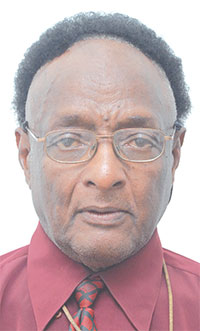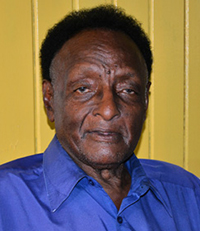Biter got four months for wounding but, freedom, by Full Court
THIS happened after Myrtle who allegedly bit another woman in a triangular

eternal affair was unlucky to have a police constable testify to a magistrate that the woman had missed court attendance six times.
Without investigating further, the magistrate heard the matter ex parte and sentenced Myrtle in her absence to four months imprisonment.
Myrtle appealed and the Full Court at the trial in1978 found on the evidence, nothing on oath to show that the defendant was disobedient to the court.
The appeal was allowed. The case against Myrtle was quashed.
The facts of the case disclosed that the Appellant was charged with wounding contrary to s. 30(b) of the Summary Jurisdiction (Offences) Act, Cap. 8:02. Subsequent to the filing of the complaint there were six adjournments caused by the Appellant’s non-appearance in court.
There was an unsworn certificate of the constable’s return of service indicating that personal service had been effected. A warrant for an arrest was issued, but the magistrate did not wait for any return of service before the complaint was heard ex parte. The Appellant was therefore sentenced in her absence to four months imprisonment. She appealed.
Held: When the warrant of arrest was issued there was no proof on oath that the summons was duly served or that the defendant willfully avoided service. The constable’s certified return could not be considered as proof on oath. Further, the magistrate wrongly abandoned all consideration of the arrest warrant when he elected to proceed ex parte to the hearing of the case, without calling for or being supplied with any information as to what happened to it.
Appeal allowed.
C.M.L. John for the Appellant.
C. W. Weithers Assistant Director of Public Prosecutions, for the Respondent.
Chief Justice Crane who delivered the judgment for the Full Court disclosed that a procedural point of some practical importance to magistrate’s decision arises in this appeal.
He added “The Appellant, Myrtle Perreira, was sentenced in her absence to four months imprisonment at a Magistrate’s Court for the East Demerara Magisterial District.
She was charged contrary to s. 30(b) of the Summary Jurisdiction (Offences) Act, Cap.8:02, with wounding a woman called Sandra Higgins on July 18,1978, by biting her on the face during a fight in an eternal triangle affair on the Clonbrook Public Road.
As gleaned from the record before us, the complaint was filed on August 17, 1978, and between that date and December 20, 1978, when sentence was passed, there were six adjournments caused by the defendant’s non-appearance in court, notwithstanding the unsworn certificate of the constable’s return indicating personal service had been effected on September 11, 1978.
The record also shows that the warrant of arrest was issued on November 29,1 978 but the magistrate did not wait for any return of service thereto before he proceeded to hear the matter ex parte.
The warrant was not produced as an exhibit in these proceedings, although it was conceded by the prosecution there has been no return to it.
So the question arises, in view of what has transpired, whether there has been a proper adjudication in due form of law.
By parity of reasoning I consider that having decided to issue his warrant, when it was sworn before him, that the defendant was willfully voiding service of the summons, the magistrate was in duty bound to await the result of the constable’s endorsed return to it, if he were to do justice to the case.
Had the warrant been executed and the defendant brought before the magistrate, he could have then and there proceeded to try the case in the ordinary way, but if the return of service were to the effect that the defendant was dead or could not be located, there could hardly be justification for proceeding to an ex parte hearing.
In my opinion, it was very necessary for there to have been a baliff or constable’s return to the warrant, and I am making that omission the basic point of my decision in allowing the appeal rather than the ground taken by Counsel for the Appellant, that “specific illegality substantially affecting the merits of the trial was committed when the learned magistrate proceeded to try the case, without an affidavit of service or evidence by the person who served the summons”.
Justice Crane had said “S.13 expressly confers on the court the discretion to adjudicate in only one or the other of three alternative situations.
On the clear wording of that section, it appears to me, it cannot have been the intention of the legislature that the court should adjudicate simultaneously under s. 13 (1) (a) and (13) (c). I so consider because it is not reasonably permissible for the learned magistrate to have pursued more than one course of action under s.13 (1) at one and the same time, and until there was a return to the warrant he could not properly do so.
I may illustrate what I mean by way of example: suppose the magistrate had thought it fit “to adjourn the hearing to some future day”, as well he might under s. 13(1) (b), clearly it would have been impermissible to call up the case on an earlier date and proceed to an ex parte hearing, if proof on oath became available before that “future day” had arrived.”











